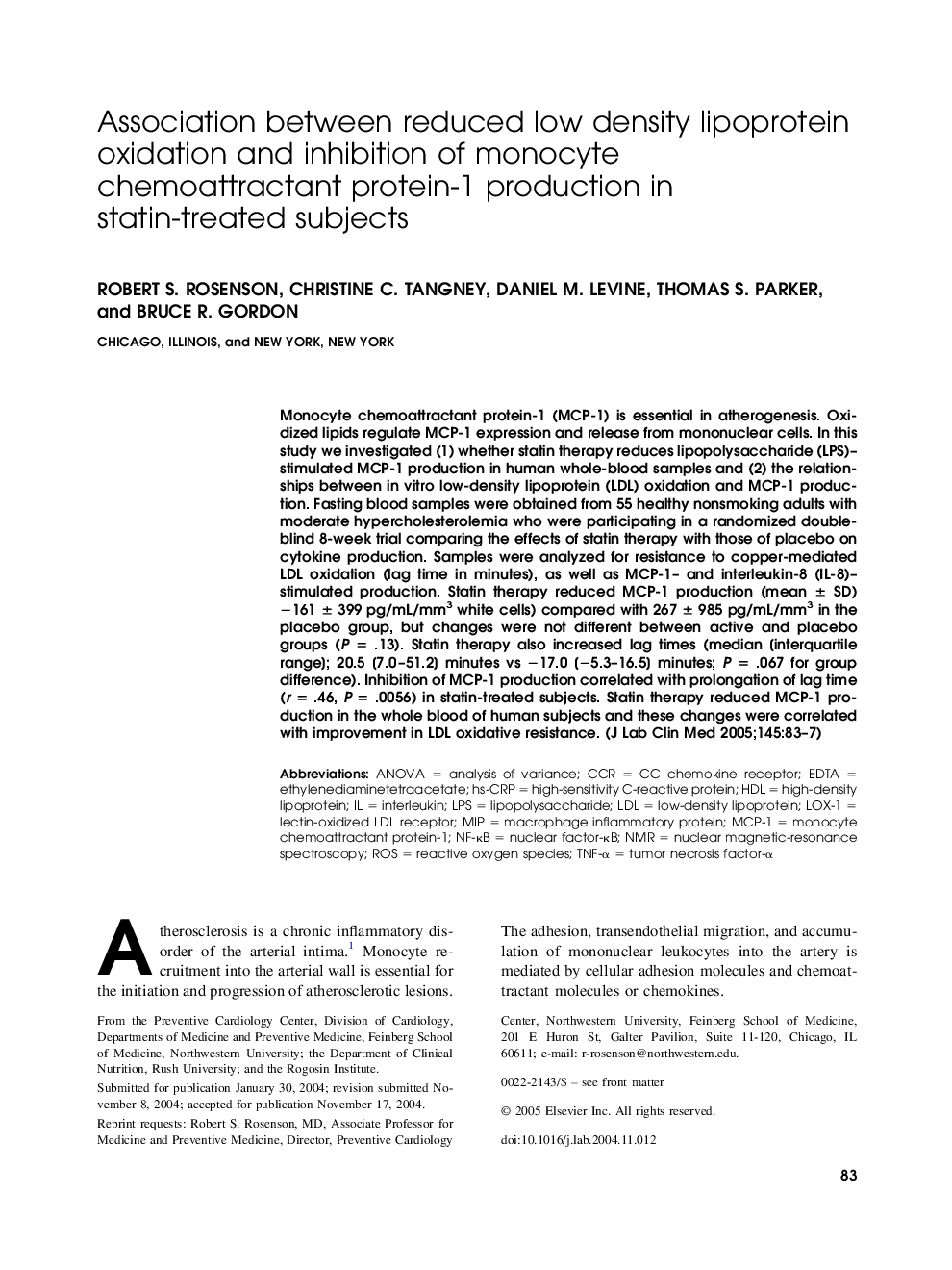| Article ID | Journal | Published Year | Pages | File Type |
|---|---|---|---|---|
| 9296469 | Journal of Laboratory and Clinical Medicine | 2005 | 5 Pages |
Abstract
Monocyte chemoattractant protein-1 (MCP-1) is essential in atherogenesis. Oxidized lipids regulate MCP-1 expression and release from mononuclear cells. In this study we investigated (1) whether statin therapy reduces lipopolysaccharide (LPS)-stimulated MCP-1 production in human whole-blood samples and (2) the relationships between in vitro low-density lipoprotein (LDL) oxidation and MCP-1 production. Fasting blood samples were obtained from 55 healthy nonsmoking adults with moderate hypercholesterolemia who were participating in a randomized double-blind 8-week trial comparing the effects of statin therapy with those of placebo on cytokine production. Samples were analyzed for resistance to copper-mediated LDL oxidation (lag time in minutes), as well as MCP-1- and interleukin-8 (IL-8)-stimulated production. Statin therapy reduced MCP-1 production (mean ± SD) â161 ± 399 pg/mL/mm3 white cells) compared with 267 ± 985 pg/mL/mm3 in the placebo group, but changes were not different between active and placebo groups (P = .13). Statin therapy also increased lag times (median [interquartile range]; 20.5 [7.0-51.2] minutes vs â17.0 [â5.3-16.5] minutes; P = .067 for group difference). Inhibition of MCP-1 production correlated with prolongation of lag time (r = .46, P = .0056) in statin-treated subjects. Statin therapy reduced MCP-1 production in the whole blood of human subjects and these changes were correlated with improvement in LDL oxidative resistance.
Keywords
CCRMCP-1hs-CRPHDLMIPLOX-1LPSNF-κBhigh-density lipoproteinROSEDTAethylenediaminetetraacetateinterleukinanalysis of varianceANOVANMRtumor necrosis factor-αTNF-αnuclear factor-κBLow-density lipoproteinLDLlipopolysaccharidemacrophage inflammatory proteinmonocyte chemoattractant protein-1high-sensitivity C-reactive proteinReactive oxygen speciesCC chemokine receptor
Related Topics
Health Sciences
Medicine and Dentistry
Medicine and Dentistry (General)
Authors
Robert S. Rosenson, Christine C. Tangney, Daniel M. Levine, Thomas S. Parker, Bruce R. Gordon,
